

2022-27
STRATEGICPLAN
“Turning Commitment Into Transformation”


“From the mental health crisis and the opioid epidemic, to police-
community relations and reentry programs, to mapping criminal
behavior and leveraging the latest tech to prevent crime, our students are tomorrow’s changemakers for society’s most pressing challenges.
Naelys Luna, PhD, MSW, Founding Dean and Professor
THE BACKSTORY
Florida Atlantic University’s College of Social Work and Criminal Justice was founded in July 2020, encompassing the Phyllis and Harvey Sandler School of Social Work and the School of Criminology and Criminal Justice. The synergistic partnership between social work and criminal justice paves the way for the college to impact the world:
1) Serve on the leadership vanguard in these professions
2) Address a wide range of societal needs
3) Establish lasting, more holistic solutions
This is the college’s first strategic plan We have chosen the theme “Turning Commitment into Transformation” because it underscores the partnership that brings two highly regarded schools together and transforms them into one college.
This steadfast commitment and resultant transformation are both aspirational and inspirational, guided by integrity and a
high sense of moral purpose Integrity embodies the accountability each of us in the college needs to ensure that we are aligned, and everyone is moving in the same direction.
Strategic planning provides a rare moment – especially early in the life of an organization – to think outside frameworks that often constrain us The college is using this plan and its outcomes to open doors, build new relationships, demonstrate value, and advocate for itself and its professions
This plan is ambitious and holistic, attainable and grounded in strategic reality A Planning Development Committee, faculty, and staff worked hard to ensure this plan’s strategic priorities are concrete and achievable.

The planning process began in Fall 2020, guided by the Planning Development Committee comprised of college faculty and staff College leadership and faculty
members were interviewed at the outset of the project, which led to the development of thematic summaries and subsequent guides for group discussions with:
1. All Faculty (three sessions)
2. All Staff
3. Undergraduate Students
4. Graduate Students
5. Alumni
6. FAU Deans and University Leaders
7 External Partners and Stakeholders
Additional discussion groups were held with the Committee, college leadership, faculty, and staff throughout the process in order to build the plan interactively and to remain collectively focused on identifying the most important strategic priorities
From the input shared during these sessions, strategic themes and action items emerged These strategic priorities and actions items were then reviewed, tested, and refined on a regular basis The stakeholder feedback also informed and inspired the college Vision and Mission Statements
se governing
ching
September 29,
“Three to five (priorities) is really good to have for the purposes of keeping people focused. … A plan with too many goals ‘looks like you have just recorded what everybody hoped you would...’”
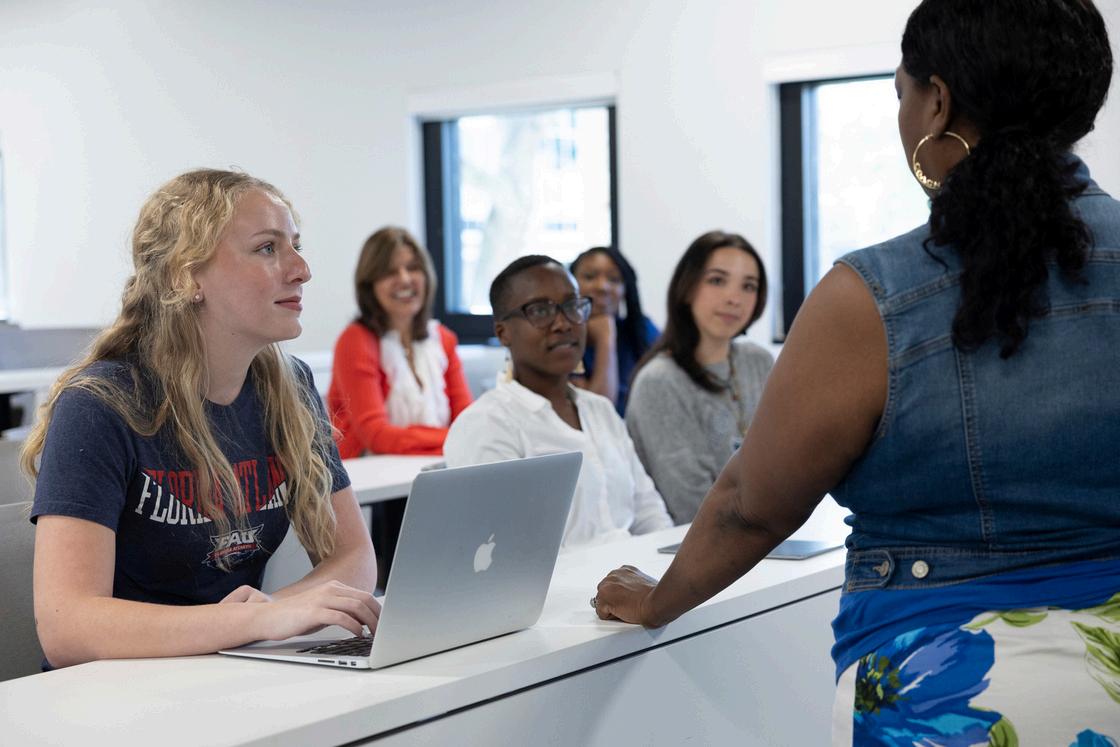
WHY IT MATTERS
Thoughtful, engaging, and accountable strategic planning is a best practice undertaken by all leading institutions Strategic plans are especially important when organizations are new or merging to become something different and better
Our strategic plan provides a compass that is helping us define our path forward and focus our resources in a crowded, highly competitive space. Relative alignment, coherence, and focus are enabling us to better attract and retain students, faculty, and staff, build prestige, grow revenue, and improve fundraising.
Our strategic plan also creates an impetus for action and a tool to effectively guide investments in programs and initiatives, as well as align our community around specific, shared priorities.
WHERE + HOW OUR VISION
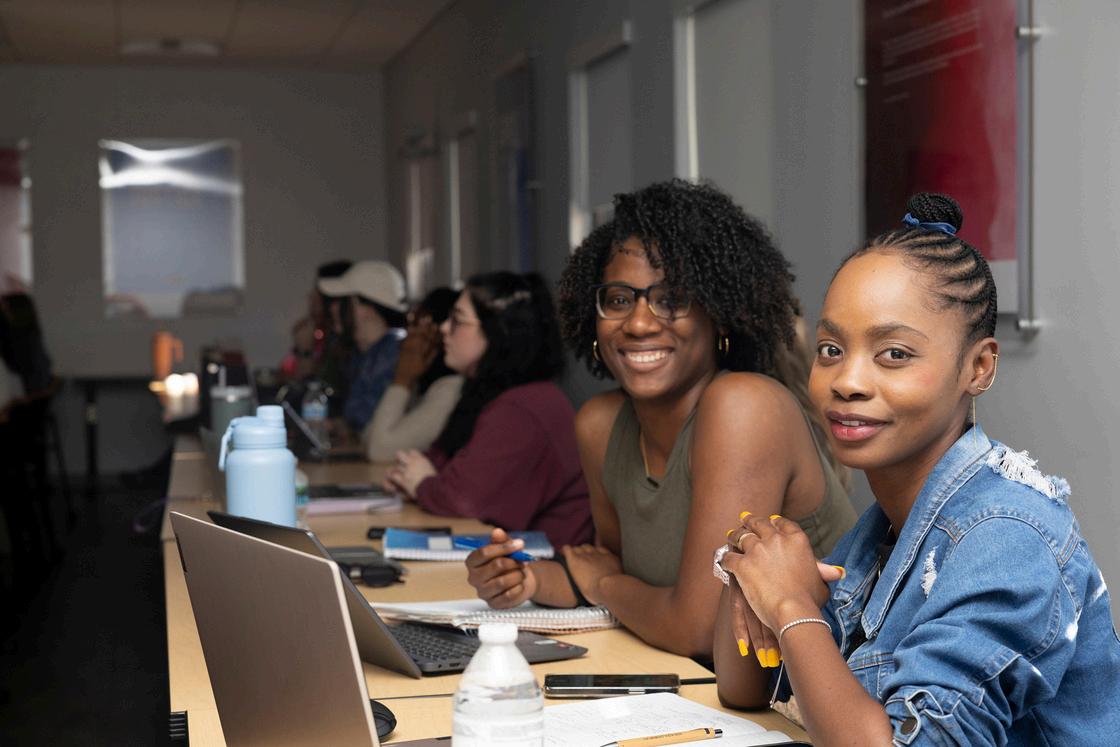
matters most in the execution of our work Mission represents the daily journey we take on route to the inspiring destination presented in our vision
OUR MISSION
We inspire and prepare criminal justice and social work leaders, scholars, practitioners, clinicians, and policymakers to enact positive change. Our distinguished faculty integrate theory with community-centered, evidence-based practices In doing so, they collaborate with our students, staff, and community partners to help:
develop ethical, culturally competent, and innovative professionals who analyze, implement, and evaluate
criminal justice and social welfare policies, practices, and technology
address societal challenges provide direct services to those in need of care and support promote just outcomes for individuals, families, and communities in South Florida and beyond
Students
Strengthen our already-robust focus on academic success, job readiness and holistic growth
STRATEGIC PRIORITIES
Community
Elevate our community engagement and impact
Research
Culture
Create a unifying and dynamic internal culture and identity rooted in a commitment to intellectual rigor, compassion, belonging, service and professionalism
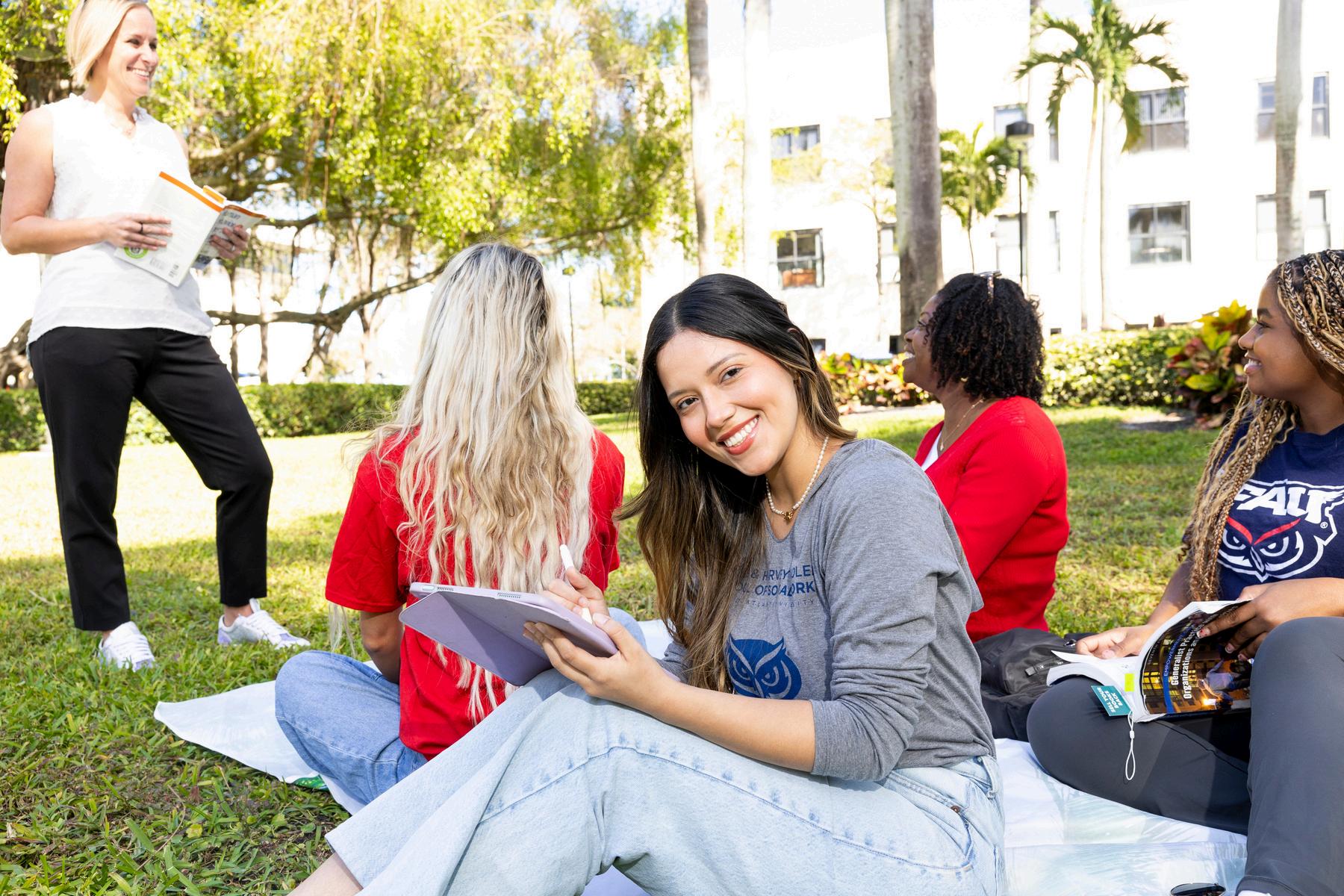
PRIORITY / CULTURE

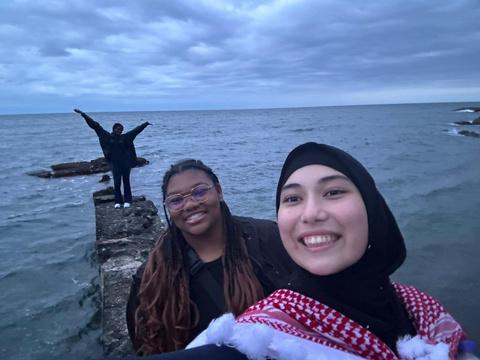

The central purpose of this strategic priority
is to develop and cohere an internal identity,
culture, and shared experience and to bolster pride in our college, our professions, and our tangible community impact. In doing so, the college community will live, inspire, and communicate a social work and criminal justice partnership that establishes the college as a leadership vanguard that can bridge and reimagine both professions.
The late leadership consultant Peter Drucker said, “Culture eats strategy for breakfast.” It
is inescapably true that the college will need
to create and honor an internal culture and identity in order to accomplish the strategies
established in this plan There are three components to this priority:
a) Create an Organizational Culture
Framework and Refine an Internal
Communication Plan: This priority sends a
signal that culture, internal identity, and internal communication matter, and being strategic and intentional about developing
them is central to achieving the five strategic priorities:
Develop Culture Plan: This brief plan will
explore our values and norms, leadership and collaborative principles and practices, expectations about the work environment, and the ways in which
leaders, faculty, and staff advance culture in words and deeds The plan should identify how, through training and other professional development, to help our people learn and implement best practices of team-building guided by
mutual respect and professionalism. The plan should also focus on how best to
build trust and safety in our relationships and mentorships, reinforced by
interpersonal communication practices that honor our inherent common good.
Refine Internal Communication Plan and Practices: As a key part of culture-
building, we will refine and enrich an internal communication plan that engenders a community of shared values
that is well informed about the college, our professions, and the communities we
serve and has frequent opportunities for
students, faculty, staff, and other internal
voices to be heard Identify the right blend of key memoranda, meetings/lunch with
the Dean, town halls and other gatherings, periodic newsletter or bulletin, and peer-to-peer communication.
b) Develop our Faculty and Staff: Faculty and staff are the cornerstones of our
organizational culture In that spirit, career
development and mentoring for faculty and staff are essential and warrant serving as an action item in this first strategic priority This is highly relevant for all our people since employees everywhere and at every career stage need to sharpen their professional, emotional, and intellectual intelligence and stay current in the demanding, ever-changing world of work:
Create Shared Standards and best practices for annual faculty and staff evaluations and policies across both schools Clarify Personnel Committees’ and individual faculty member’s roles and responsibilities
Encourage Mentoring: Foster an environment that inspires formal and informal mentoring and universal accountability to pay it forward
Recognize excellence among faculty and staff mentors and mentees Provide periodic training on how to be an effective mentor and mentee, delivered by faculty and staff members who do this well
The need for mentoring and professional development covers the range from non-tenured to fully-tenured faculty as well as staff.
c) Complete Strategic Plans for Each School: Develop strategic plans for each of the schools that support (and are drawn from) this overarching college plan and are aligned with it Recognize the unique and singular priorities, identities, cultures, and contributions of the criminal justice and social work schools and communities
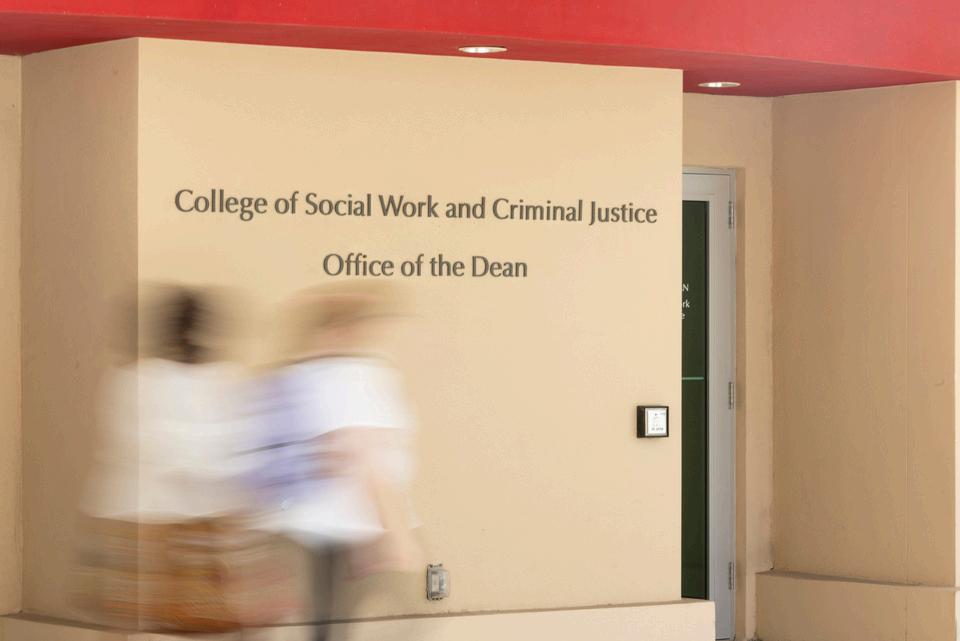

PRIORITY / STUDENTS
Strengthen our Already-Robust Focus on Academic Success, Job Readiness, and Holistic Growth

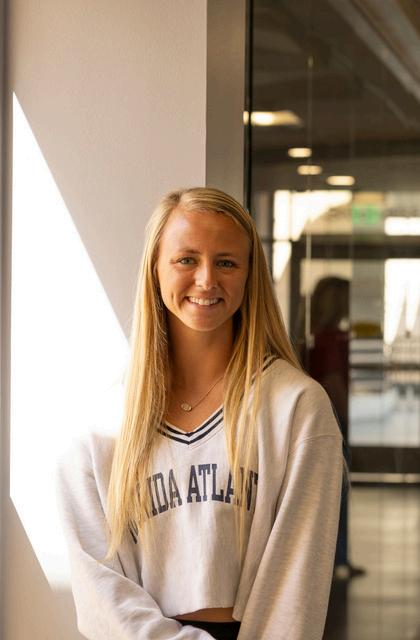

We will continue focusing on the holistic development of our students as ethical, engaged, and enlightened citizens. This includes continuing to provide students with the contemporary tools and inspirations they need to excel both professionally and personally. These include subjects ranging from digital
literacy and access to emerging
technologies to emotional intelligence, mindfulness, and communication skills
The college will ensure that teaching and classroom experiences provide students with practical, market-ready, and stimulating education that prepares them well to compete in today’s
marketplace. We will constantly reinforce with students the infrastructure of support that is already
available to them at the college and university, such as Academic Support
Services and the Career Center
a) Enhance Service-Learning
Opportunities: Develop and integrate
more high-quality, service-learning
opportunities that bring the community
to our students and our students to the
community early and throughout their
matriculation Create additional
opportunities for international service
learning through study-abroad courses
and additional options for comparative
practice models through academic
service-learning courses
b) Initiate Opportunities to Integrate
Social Work and Criminal Justice
Teaching: Students in each school will benefit from exposure to foundational teaching aspects of the other school
Identify a small number of existing courses in which key components in one discipline could be introduced into the other’s coursework and determine how this will be accomplished at each school
Advising staff and faculty at each school can develop these initiatives and decide whether this integration is best delivered early or later during students’
matriculations. This step will not affect many courses, but it could set the stage for future development of new courses that blend the two disciplines.
c) Develop and Launch the First Cross-
School Certificate Program: Identify, develop, and implement one or two certificate programs of substantiated market appeal that blend components of criminal justice and social work
PRIORITY / RESEARCH
Integrate our Research and Scholarship Portfolios

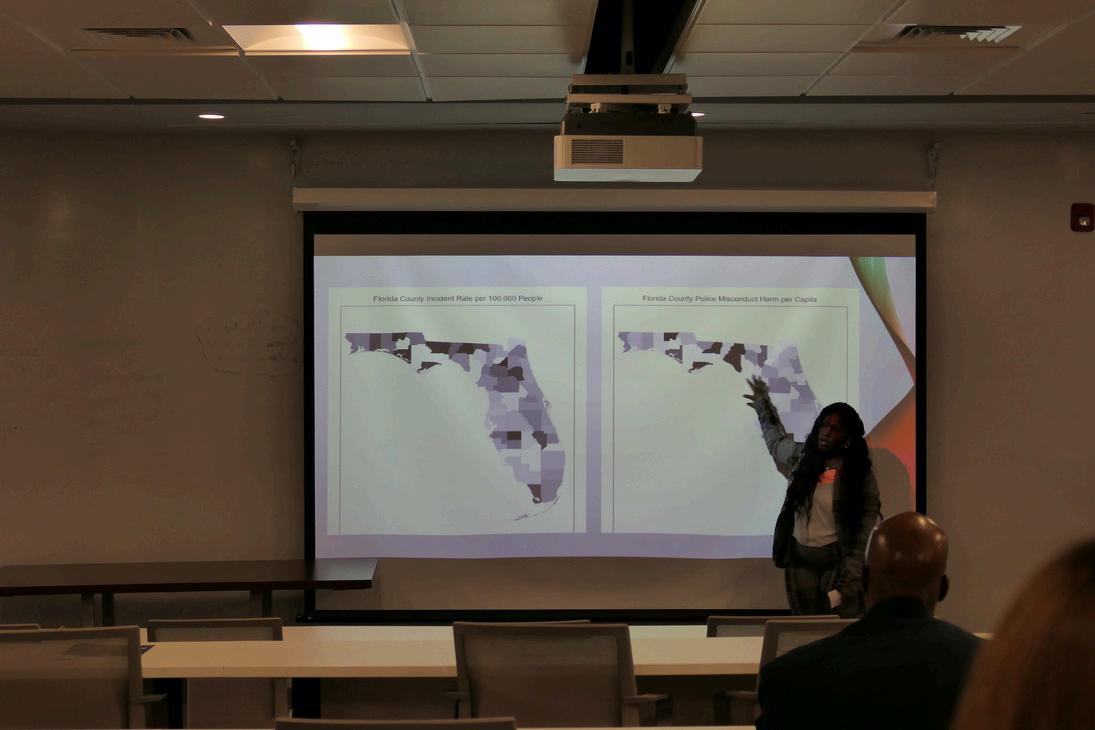

The college will grow research and scholarship in areas where it already excels and delivers meaningful community and societal impact The college will utilize
these positions of strength to grow the
research enterprise and support the
university in its prestigious classification as a Carnegie R1 institution.
We recognize that each of our schools
leads the college’s research and scholarship efforts in our communities and with our stakeholders Our goal with this
strategic plan is to ensure that the whole of
the college’s research and scholarship profile exceeds the sum of these many parts
The college will place a premium on multidisciplinary, cross-school research and scholarship that integrates social work and criminal justice. We will also extend
our cross-disciplinary collaboration by exploring realistic, mutually rewarding partnerships with select FAU schools and colleges
Our research findings and the community collaboration and goodwill through which
they are achieved serve as powerful tools for advocacy and efforts to champion systemic change, consistent with our
Vision Statement
We also intend to heighten the role and visibility of technology in achieving
important research outcomes by integrating meaningful technology into
research products and processes
Throughout all these efforts, the college will demonstrate alignment with the university’s strategic plan.

a) Develop a Shared Understanding of the
College’s Current Research Portfolio:
Develop an inventory of the college’s
research and scholarship efforts and share
this information within the college It will
otherwise be impossible to grow these efforts strategically and realistically without this baseline of shared knowledge
b) Choose Research/Scholarship Pillars and Deepen our Entrepreneurial Mindset: Understand where the college currently
excels, and which of these areas
represents the greatest need, fundability, and growth Establish criteria for choosing
three or four of these domains as our
research pillars Deepen an entrepreneurial
mindset that comes with a determination to
seek out seed funding to support pilot research and then pursue larger external
funding opportunities.
c) Identify Opportunities to Collaborate Within FAU and Beyond the University:
Identify possible research and scholarship collaborations with certain FAU colleges based on evaluative criteria to be
developed Invest the experience gained through implementing this priority into
identifying possible collaborations with national and international partners, as well
PRIORITY / COMMUNITY
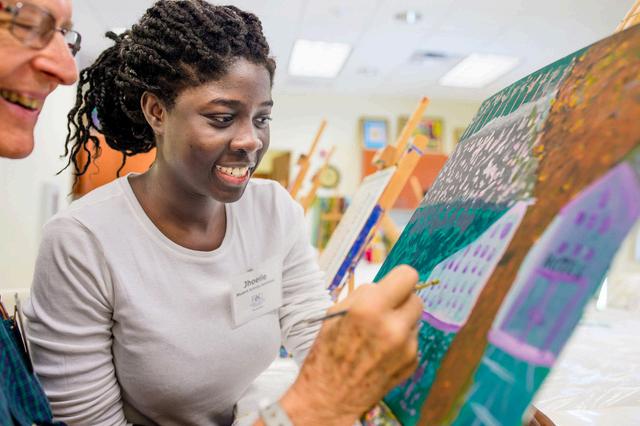

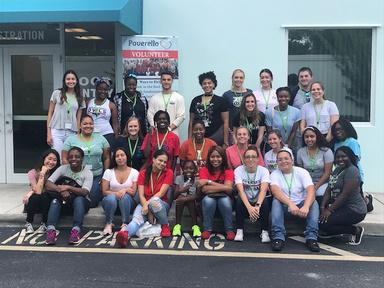
The college will strengthen further our wellearned reputation for effective community engagement We will do so by strategically expanding in areas where we currently
excel and have tangible impact and by identifying new domains and stakeholders where our work is needed and our best practices for community engagement can readily apply
We recognize that each of our schools leads the college’s community engagement efforts Our goal with this strategic plan is
to ensure that the whole of the college’s community engagement profile exceeds the sum of many parts.
We will highlight the effectiveness of our community-centered, evidence-driven engagement and the impact of our community-based participatory research, teaching, and service. Because of its excellence in community engagement, for example, the college is an essential conduit for translating research into the community
As the community engagement work broadens and deepens over time, the college could consider naming an individual to serve as a community engagement liaison with a “big picture” view of developing and coordinating this portfolio.
This priority also helps the college, with limited resources, focus on how it wants to be seen and known in our communities and among other institutions We will demonstrate alignment with the university’s strategic planning pillars and platforms For example, the university identifies community engagement as a strategic platform, and the college will seize additional opportunities to align more closely.
a) Create a College Advisory Board of community leaders to amplify the college’s external image, deepen its community engagement and impact, and increase its networking and fundraising capacity
b) Assess and Understand the College’s Current Engagement Portfolio: Agree on the top areas where the college currently excels in community engagement Assess why we excel in these areas and what makes for best practices and outcomes in effective community engagement
c) Choose Engagement Pillars: With the inventory of excellence in community engagement in place, establish criteria for choosing three or four areas as engagement pillars. These will include areas of current excellence in which we should expand, no doubt, but they may also represent new areas of community need in which to expand and apply our best practices Recognize faculty and staff leadership in community engagement and encourage it with opportunities to publish in this area and to mentor or be mentored


Striding Toward the Future
In conclusion, we extend our deepest gratitude for your unwavering support and commitment to our college vision, mission, and strategic priorities. As we look to the years ahead, we are inspired by the possibilities and confident that with your continued partnership, we will continue shaping the future of our work and make a lasting impact for generations to come. Let us move forward, united in our vision, and continue to drive meaningful change for the communities we serve Thank you for your passion and leadership in helping us turn this strategic plan into a reality

777 Glades Road
SO-44, Suite 108
Boca Raton, FL 33431
(561) 297-4170 fau.edu/sw-cj
